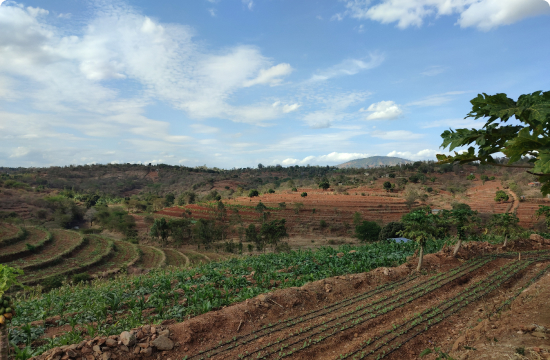Primary actors
national: Extension staff, agricultural planner, agro-input provider
district: District extension officer, District Agric & Livestock officers and planners
local: Local extension officer, local agro-input provider, lead farmer
July 5, 2023
Current fertilizer and soil fertility recommendations are not linked to local context, conditions and climate risks. Too general information may lead to declining soil fertility and soil health, low and uncertain productivity, fertilizer wastage, loss of organic matter, and environmental risks.
Current fertilizer and soil fertility recommendations are not linked to local context, conditions and climate risks. Too general information may lead to declining soil fertility and soil health, low and uncertain productivity, fertilizer wastage, loss of organic matter, and environmental risks. Integrated Soil Fertility Management (ISFM) has the potential to improve effectivity and efficiency of agronomic practices including both fertilizer recommendations and organic matter management and thereby boost crop production and farm income. Also, ISFM has the potential to deliver multiple co-benefits including climate adaptation (through improved water holding capacity and soil cover) as well as climate mitigation (through carbon sequestration).
Improved agronomic management advisories including crop type and soil fertility management to farmers via agricultural extension staff or directly.

Land users and their intermediaries can use the system to obtain information on the soil fertility and alternatives to improve soil fertility. It is based on existing data (soil, terrain, crop, climate), apps (decision support tools, etc.) and models (WOFOST, DSSAT etc) accessible in the LSC-hub. These will include risk assessment of weather and other external factors.
national: Extension staff, agricultural planner, agro-input provider
district: District extension officer, District Agric & Livestock officers and planners
local: Local extension officer, local agro-input provider, lead farmer
Hub-hosts and administrator: EIAR, KALRO, RAB; related data providers.
Farmers.
The intermediary user accesses the LSC-Hub’s web-based data system or portal, and finds existing information on Land, Soil and crops. The intermediary actor – extension agent / lead farmer / agricultural input provider - converts this information into an agronomic and fertilizer recommendation and provides advise to end users, in particular farmers.